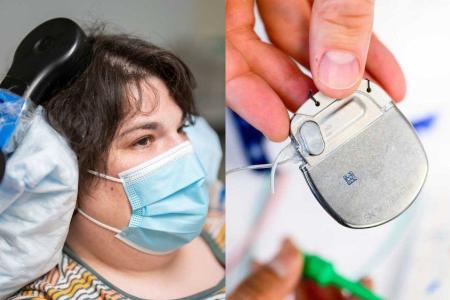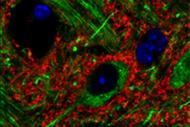A 27-year-old drug for anemia may protect newborns at high risk for brain damage, according to the results of a multisite trial led by researchers at UCSF.
Proper communication between the left and right sides of the brain is critical for the development of advanced language skills, according to new research by UC San Francisco scientists.
In the largest-ever gift to UCSF, the Weill Family Foundation and Joan and Sanford I. “Sandy” Weill have donated $185 million to establish the UCSF Weill Institute for Neurosciences.
UCSF leaders are lauding the gift by Joan and Sanford I. Weill as transformational, giving the University an unprecedented opportunity to unite and expand its neurosciences community during a revolutionary period in brain discovery.
With one drug to shut down its progression and another to undo its damage, plus a worldwide effort stalking the origins of multiple sclerosis, MS doesn’t stand a chance.
Frontotemporal dementia, the second most common cause of dementia in people under 65, may be triggered by a defect in immune cells called microglia that causes them to consume the brain’s synaptic connections, according to new research led by UCSF scientists.
UCSF neuroscientists Michael Brainard and John L.R. Rubenstein have been elected to the American Academy of Arts and Sciences.
In a study of 10 children published online in the American Journal of Human Genetics on April 14, the researchers linked a constellation of birth defects affecting the brain, eye, ear, heart and kidney to mutations in a single gene, called RERE.
The UCSF community is deeply saddened by the passing of Andrew S. Grove, former CEO and chairman of Intel Corp., who applied his drive for innovation to advocacy for advancements in health care and the treatment of cancer and Parkinson’s disease.
UCSF is moving forward with plans to construct a new building at its Mission Bay campus to support its world-class neuroscience enterprise at a time of great opportunity for advancement in the field, following approval by the UC Regents.











